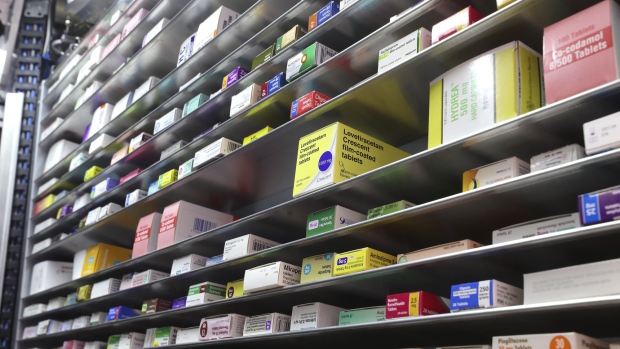Jul 11, 2019
White House pulls the plug on proposed drug-rebate overhaul
, Bloomberg News

The White House has abandoned a push to end rebates collected by middlemen who negotiate drug prices on behalf of health insurers.
Rebates have become a political target in Washington amid rising anger over high pharmaceutical prices. Pharmacy-benefit managers negotiate drug discounts in the form of rebates, keeping some of that money for themselves. The practice, critics have said, gives drugmakers a reason to keep list prices high, distorts incentives for drug plans and leaves consumers paying more out of pocket for prescription drugs.
Investors in companies that run large pharmacy-benefit managers cheered the move. CVS Health Corp. shares climbed 4% in premarket trading in New York on Thursday, while UnitedHealth Group Inc. advanced 2.6 per cent. Shares of large drugmakers were little-changed.
President Donald Trump’s proposal would have prohibited drugmakers from paying rebates to PBMs in government programs such as Medicare. The move could have upended a complex system that influences tens of billions of dollars of pharmaceutical spending.
“Based on careful analysis and thorough consideration, the President has decided to withdraw the rebate rule,” said Judd Deere, a White House spokesman. He said that the administration was encouraged by bipartisan discussion on legislation to control drug costs.
Ending the push to overhaul the rebate system represents the second setback this week for a broad-reaching campaign by the Trump administration to rein in rising pharmaceutical costs. On Monday, a federal judge ruled the Department of Health and Human Services overstepped its authority with its plan to force drugmakers to disclose list prices in advertisements.
News of the White House decision was first reported by Axios.
Drugmakers pay rebates to health insurers and PBMs in exchange for preferred status with those plans’ customers. The pharmaceutical industry has said PBMs prefer higher-priced drugs so they can negotiate bigger rebates and pocket more of the money.
Pharmacy-benefit managers blame drug companies for soaring prices and have said that rebates help keep overall health costs down.
--With assistance from Margaret Talev







